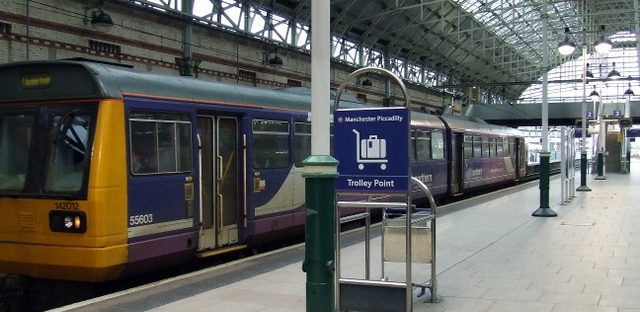Commuters in Greater Manchester warn of being unable to afford new train fare hikes
- Commuters and consumer groups warn that people will be unable to afford to travel by train
- MMU transport expert warns against growing calls by politicians to renationalise railways
Rail fares have risen to their highest level for five years last week, angering commuters and politicians.
Commuters and consumer groups have warned the government that the fare increase will see people be unable to afford to travel by train and potentially resulting in people having to endure longer commutes by car and bus just to get to work.
The increase in train fares it will see annual season tickets rise on average by £100 at a time when wages are decreasing. And commuters have experienced repeated disruption over the past year because of industrial action by the RMT Union.
I still try to catch the train to work where possible but the car is already more cost effective and time effective and the increase in fares will only widen this gap. Increasing fares at a rate faster than salaries are increasing just punishes commuters.
— Kieron Rees (@kieronsrees) January 2, 2018
MMU transport expert Tony Miles explained how the government is justifying the biggest rail fare hikes for five years: “Fares have gone up in order to fund better trains with more capacity particularly in the North of England and more services on Sundays.”

But commuter Andrew Porterfield believes that train fares should not be rising when train services are not investing to replace ageing trains and infrastructure.
He said: “There may be a case for train fares not to increase for services where the rolling stock of trains hasn’t been upgraded then why increase the price on those lines?”
He also believes the government need to intervene to make the railways more affordable, saying: “Train fare increases should be linked to wage increases not the retail price index.”
Mr Miles warned politicians, particularly from the Labour Party who called on the government, that renationalising the railways would not necessarily result in fares decreasing.
“Renationalising wouldn’t resolve this one. Apart from the billions of pounds of investment it would cost to buy everything back which somebody would have to pay for- taxpayers probably,” he said.
“People who previously worked at British Rail have said that fares would still rise after the railways had been renationalised.”


